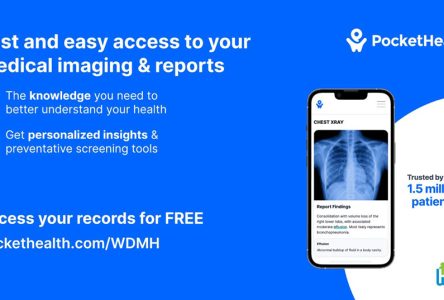Two new clinical trials at Winchester District Memorial Hospital (WDMH) will help to advance medical knowledge and patient care.
“Clinical trials can provide positive impacts for many patients in the future, offering benefits such as new treatments or better drug options,” explains Chief Research Officer Dr. Mohamed Gazarin. “Through rigorous testing, evidence-based trials ensure the solutions are safe and effective before they are used in clinical practice.”
COVID-19 AND IMMUNOCOMPROMISED PATIENTS
One of the trials focuses on COVID-19 and immunocompromised patients. In a healthy individual, your immune system works to clear the body of any viral or bacterial infections. However, certain conditions, medications, or diseases can cause the immune system to become compromised or suppressed.
Immunocompromised patients with COVID-19 are at a higher risk of developing severe symptoms, due to a decreased immune response, a higher viral load within the body, and the increased potential for treatment-resistant strains to develop. This increased potential for the emergence of new variants puts the general population at risk.
Paxlovid is an approved treatment for mild-moderate COVID-19 symptoms in adults and pediatric (12+) patients. For immunocompromised patients, the current five-day treatment protocol may not be long enough to fully clear the virus from the body. This study will explore the efficacy and safety of various treatment lengths, to determine the most effective protocol for these populations.
URINARY TRACT INFECTIONS IN PATIENTS OVER 65
E-Coli is a very common bacteria and is the number one cause of urinary tract infections (UTIs). Left untreated, especially in older adults, this bacteria can progress further into the internal organs and blood stream, leading to systemic bacterial infection. Once this happens, it requires the use of complex IV antibiotics to treat.
E-Coli bacteria is becoming highly resistant to many antibiotics and this antibiotic resistance can lead to treatment failure, as well as increased hospitalization, mortality rates, and healthcare costs.
This study will focus on patients 65+ with UTIs, who will receive either an E-Coli vaccine or a placebo. The goal is to determine the effectiveness of the vaccine in protecting from UTIs caused by the E-Coli bacteria and preventing the systemic bacterial infections that can follow. The development of an E-Coli vaccine will prevent over-use of antibiotics, which in turn will minimize the development of antibiotic resistance.
To learn more about WDMH’s clinical trials, visit www.wdmh.on.ca/clinicaltrials or email research@wdmh.on.ca.
If you would like to provide comments or suggestions about WDMH, please contact Cholly Boland, President and CEO, at 613-774-1049 or cboland@wdmh.on.ca.



